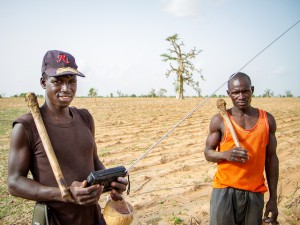Rural workers and rural populations
Most people living in rural areas in the Global South do not have access to social protection. People in rural areas are disproportionately exposed to income insecurity, as employment is typically casual, seasonal and low paid. With few resources, low income, and high risk exposure, rural populations are particularly vulnerable to severe financial hardship. Approximately 150 million people experience financial catastrophe each year, and 100 million are end up in poverty from paying for health services. Women in rural areas are often particularly vulnerable, owing to limited access to land, productive resources and employment, as well as patriarchal social and cultural norms.
Ensuring access to social protection, including at least a basic level of income security and access to services, especially health care, ensures that people can realize their right to social security, and is also a key factor for social and economic development. Social protection — especially in education and health— is an investment in human capital, which in the long term improves individuals’ employability and productivity. Cash and in-kind transfers to financially insecure households can help encourage parents to keep their children in school, reducing child labour.
Employment guarantee schemes (such as MGNREGA in India) can also increase wages and provide at least a minimum level of income security. Cash transfer programmes can play a particularly important role for rural populations, as they are an important channel for regular, if modest, cash income. This contributes not only to income security, but also to local economic development. Contributory schemes that are adapted to workers’ specific needs, such as rural pension schemes, can also play an important role in protecting these populations. Nationally defined social protection floors, in line with Recommendation No. 202, are particularly important for rural populations. Ensuring the availability, accessibility and acceptability of health care and other social services, including investments in infrastructure and qualified staff, is key to ensuring rural people’s access to these services.
Photo credit: “Radio weather bulletin” by Climate Change, Agriculture and Food Security (CCBY 2.0 via Flickr)

